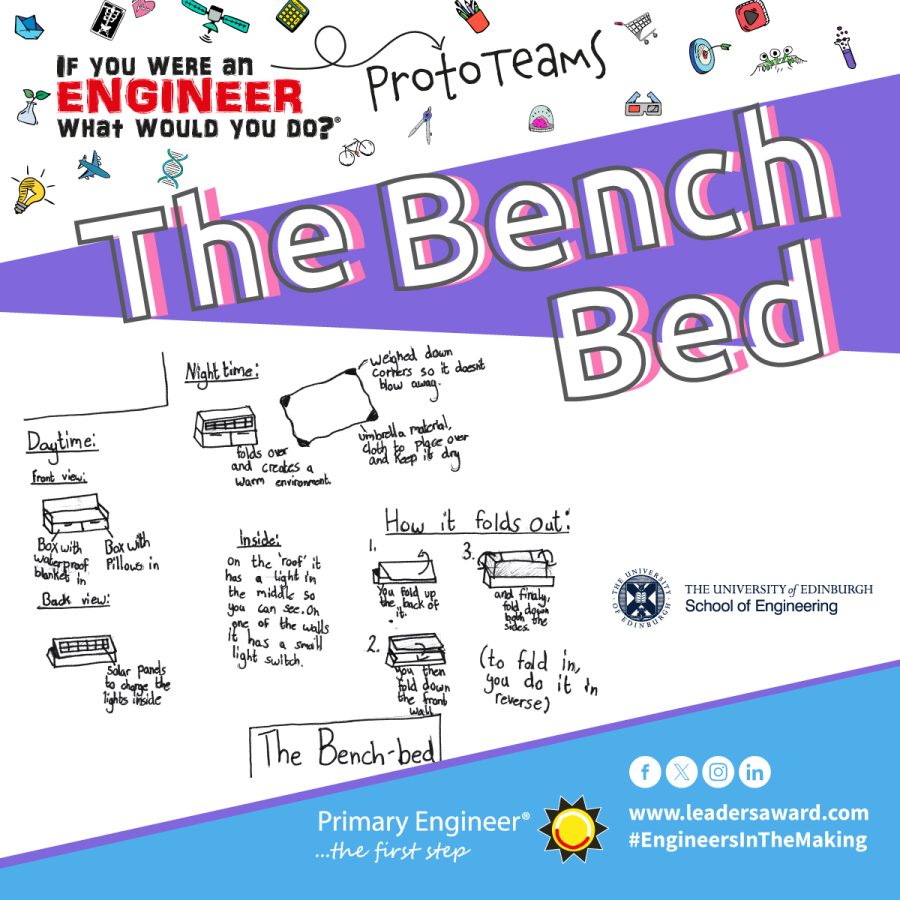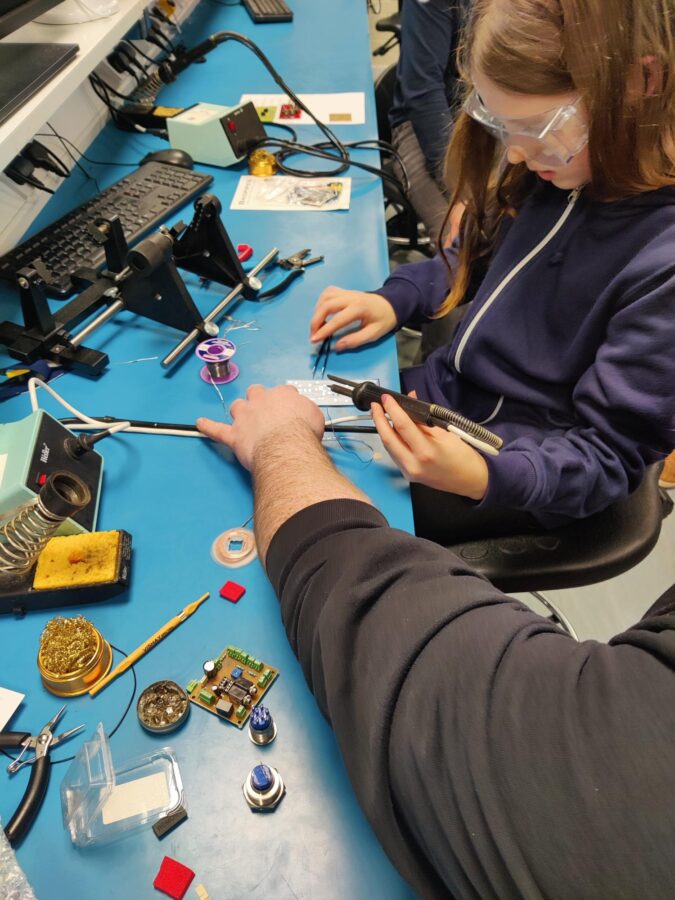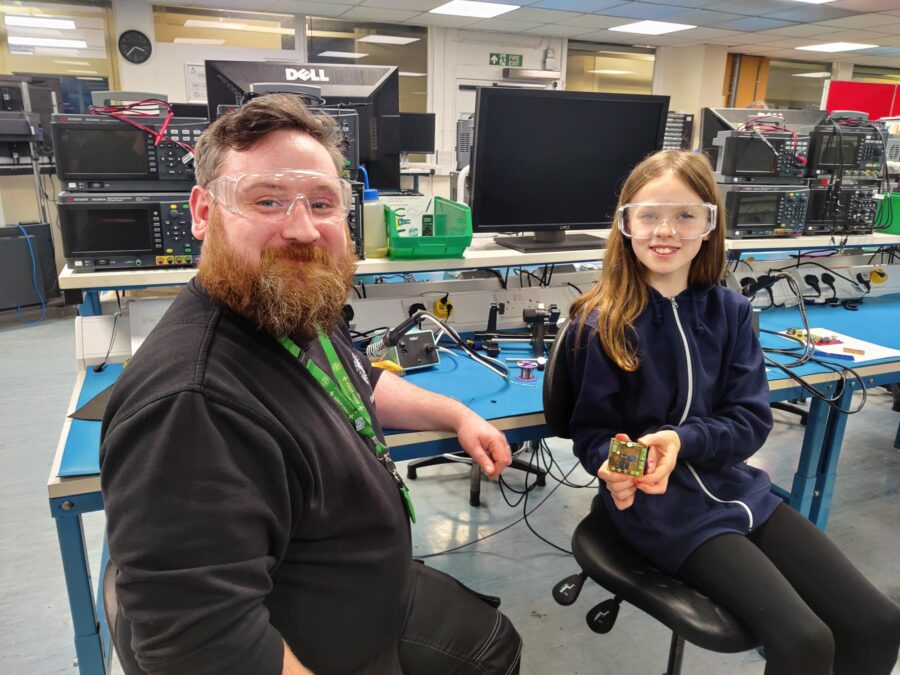
University of Edinburgh Creating the Bench Bed Prototype – Midpoint Update!
Where we left off…
Libby’s innovative “Bench Bed” idea, transforming a bench into a sheltered bed for homeless individuals selected by the University of Edinburgh’s School of Engineering to be turned into a working prototype through the 2024/2025 academic year. After an exciting design meeting where Libby chose a cylindrical version for easier usability and multi-purpose functionality, the team and Libby collaborated on ideas for features such as USB charging, solar panels, lighting, heating, storage for essential supplies, and even a communications system. The design was praised for its social impact, practicality, and commercial potential. With final features and materials being discussed, the next step was to finalise the design, begin construction, and continue involving Libby and local communities in the process.
The Project So Far!
The team kicked things off with a meeting with Social Bite to understand what really matters for the people this project aims to support. From the meeting they found it would be best to focus on vulnerable individuals, and make sure their basic needs come first. That’s why the final design includes a hidden drawer under the bench stocked with essentials like covers, hygiene supplies, and pillows.
Once the design got the green light from Libby, it was time to gather materials. Steve Gourlay, Mechanical Workshop TSO and Co-Design Lead, led his team in building the bench frame. On the electronics side, a custom PCB (printed circuit board) was designed to control lights, the audio system, and a uController interface with Libby’s signature featured proudly on the board! She even got hands-on experience at a soldering workshop, where she helped build the PCB herself. A second copy was made as a keepsake for her, celebrating her amazing contribution and time with the University of Edinburgh.


To get even more people involved, a design competition was held at Libby’s school. Pupils were challenged to create artwork that reflected their community, nature, or the environment (or all three!). The entries were fantastic, and Libby got to chose a winning design from each year group, plus two overall winners whose artwork will decorate the final prototype!
Challenges Encountered and How The Team Overcame Them…
To make the prototype easier to move around, the team decided to shrink it down. But with a smaller size came new challenges, mainly with materials and electronics storage. The original metal for the frame turned out to be too thick to bend at the new size. The solution? Switching to aluminium extrusion that could be shaped with the manual metal former.
Electronics were another puzzle. By shrinking the battery by 40%, designing a more compact PCB, and choosing low-profile switches and USB ports, the team managed to fit everything neatly into one drawer. That did mean a little less space for the supplies but not a problem for the full-scale version, where the electronics can live elsewhere.
Alongside the design challenges of reducing the size, the team also had to consider how to wire up the solar panel on a rotating surface. To resolve this, they decided to move the solar panel to part of the non-rotating surface and feed the wiring through a hinge that has a gap in the middle.
After months of hard work, the bench frame is now really starting to take shape, and all the electrical components are ready for assembly. Now that the academic year is wrapped up, the technicians have more time to jump in and bring it all together. Imogen Heard, Specialist Technical Officer and Co-Electrics Lead, is fine-tuning the code that powers the lights and comms system via the uController.
So what’s the Next Steps?
As the big reveal approaches, the team is focused on finishing the prototype. On the electronics side, a bench test will be run to make sure everything is working perfectly and fix any glitches. Mechanically, the final touches include adding a hinge, shaping and attaching the paneling (including the winning school designs!), and fixing the solar panel in place. Finally, the electronics will be neatly packed into the drawer, ready for action.
The completed prototype will also be proudly unveiled to Libby and the guests at the Primary Engineer Leader’s Award, ‘If you were an engineer, what would you do?’ Exhibition and Awards event, hosted at the University of Edinburgh in May!
For more information or to book your FREE tickets click here!
